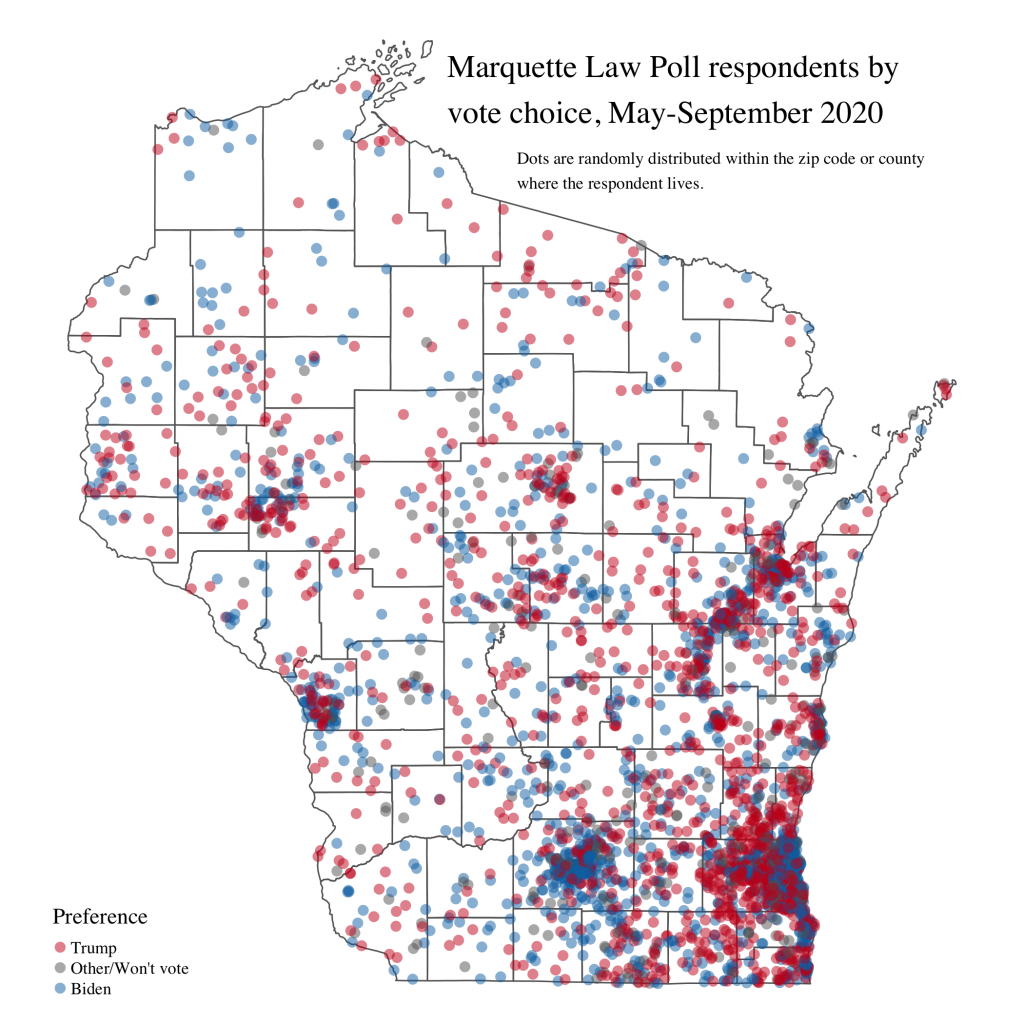Mapping the 2020 Vote Preference of Each Marquette Law Poll Respondent
Each dot on this map is a (weighted) interview with a Wisconsin registered voter conducted by the Marquette Law Poll from May to September, 2020. Dots are randomly distributed within the zip code (or county if unavailable) where the respondent lives.
You can view an interactive version of this map here. Please remember that dots are randomly placed within zip codes.
We talked to 3,219 people across our May, June, August, and September surveys. Pooling these together, 47% supported Biden; 42% supported Trump; and the remainder either supported someone else, weren’t sure, or didn’t plan to vote.
Maps like these are a useful antidote to the kind of choropleth maps that shade counties entirely one color or another. Even the most Republican counties are home to lots of Democrats; likewise, plenty of Republicans live in heavily Democratic cities of Madison and Milwaukee.

